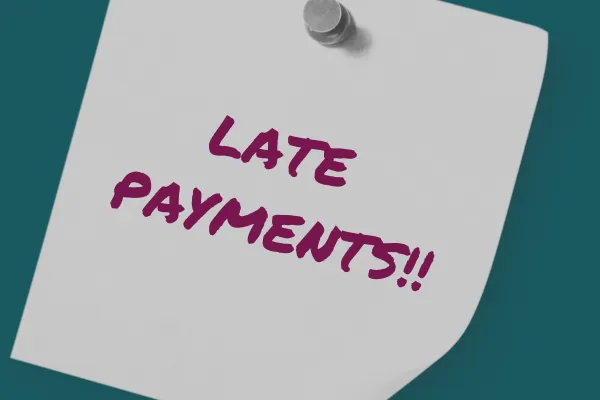INSIGHTS
Discover our insights and the latest thinking in operational efficiency.
INSIGHTS
Discover our insights and the latest thinking in operational efficiency.

How to Minimise the Risk of Late Payments
Late payments can be a significant challenge for small business owners, causing financial strain and uncertainty. To help you address this issue and minimise the risk of late or non-payments, we've compiled a list of practical steps you can take.
By implementing these strategies, you can create a more secure financial environment for your business.
Collect upfront payments: Consider requesting partial or full payment upfront to mitigate the risk of late payments. This approach helps cover initial costs and demonstrates commitment from the customer. Incorporating upfront payments into your payment terms can safeguard your business.
Streamline invoicing procedures: Simplify your invoicing procedures to ensure they are easy to follow. Clearly state payment terms, due dates, payment methods, and bank details. Opt for payment providers or banks that offer user-friendly options like Stripe, Wise, or Monzo. These platforms often facilitate payment through weblinks, enhancing convenience for your customers.
Establish a proactive follow-up process: Develop a robust process for following up on late payments. Implement a plan to handle late or non-payment situations promptly. Sending friendly reminders and follow-up emails to customers who haven't paid on time can be effective. Consider using automated reminders through invoicing software or CRM tools to streamline this process.
Offer discounts for upfront payments: Consider incentivizing customers with discounts for upfront payments. This strategy may not be feasible for all businesses, but it can significantly reduce the risk of late payments. For services provided over an extended period, offering a percentage reduction for upfront payment can motivate customers to pay on time.
It's important to remember that while you can take steps to minimise the risk of late payments, there is no fool proof method to guarantee timely payment from customers. However, by implementing these measures, you can significantly reduce the opportunity for late payment to occur and create a more secure financial environment for your business.
Additional Steps to Safeguard Your Business Finances
In addition to the aforementioned steps, establish clear credit policies for your business. Conduct credit checks on potential customers to evaluate their payment history and financial stability. If concerns arise from the credit check, adjust payment terms accordingly, such as requesting higher upfront payments. Clearly communicate these policies to set expectations from the outset.
Implement late payment penalties. Consider incorporating late payment penalties or interest charges into your terms and conditions. This approach serves as a deterrent for customers who may otherwise delay payment. Clearly outline these penalties on your invoices, ensuring compliance with relevant legal limits. While this may not prevent all late payments, it encourages timely payments.
If late payments significantly impact your cash flow, explore invoice financing or factoring services. These financial solutions allow you to sell unpaid invoices to third-party companies at a percentage of their value. Although you won't receive the full payment immediately, this can provide immediate access to funds, easing the strain on your business finances.
By implementing these strategies and adopting a proactive approach to financial management, you can enhance your chances of receiving timely payments from customers. Effective communication, streamlined processes, and proactive measures are key to mitigating the impact of late payments on your small business.
Simplified Operations Ltd.
© Copyright 2023
Registered in England and Wales
14795499
hello@simplifiedoperations.co.uk
Simplified Operations Ltd.
© Copyright 2023
Registered in England and Wales
14795499
hello@simplifiedoperations.co.uk
